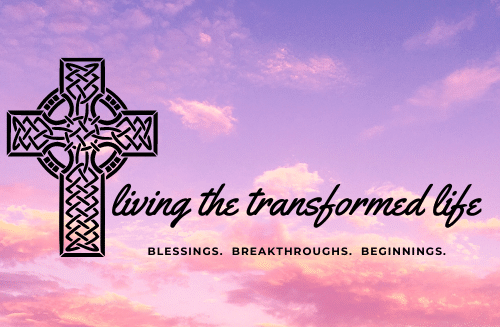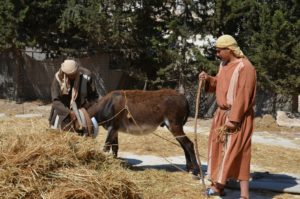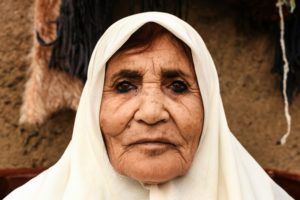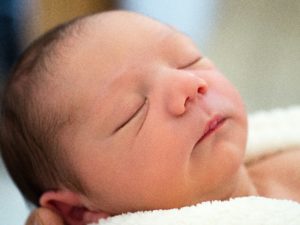 What’s In A Name?
What’s In A Name?
Within the pages of the Bible is a short book, only four chapters long, and it describes one of the most famous romances of all time. Its author is unnamed, though most scholars attribute it to the prophet Samuel, because it is set in the days of the Judges.
If you haven’t guessed yet, I’m talking about the book of Ruth.
The story of Ruth and Boaz is a fascinating one. But there is another person in the narrative who always draws my attention. She is a person whom many would relate to, if they knew her.
It all starts with Ruth 1:1-2. “In the days when the judges ruled, there was a famine in the land. So a man from Bethlehem in Judah, together with his wife and two sons, went to live for a while in the country of Moab. The man’s name was Elimelek, his wife’s name was Naomi, and the names of his two sons were Mahlon and Kilion. They were Ephrathites from Bethlehem, Judah. And they went to Moab and lived there.”
There’s a lot of information packed into those two little verses. Let’s take a closer look.
The family is referred to as Ephrathites from Bethlehem, a small town in Judah. Ephrathah was the ancient name for the city, which was renamed Bethlehem after the conquest of Canaan. Both names are significant. Ephrathah means “fruitful,” and Bethlehem means “house of bread,” indicating that the area was fertile farmland.
The head of the family was Elimelek, meaning “my God is King,” showing that he was a faithful Jew. His wife’s name was Naomi, which means “sweet” or “pleasing,” a lovely name for a spouse.
Names were carefully chosen and held great significance in Bible days, so the names of their sons are somewhat controversial. Mahlon means “sickness,” and Kilion (or Chilion, depending on the translation) means “wasting.” Why would their parents give them such dismal names? We are told there was a famine in the land, and perhaps it was a long-lasting event. If the sons had been born during this period, their names could reflect the despair felt by their parents.
 Moving To Moab
Moving To Moab
In fact, the famine is so severe that Elimelek makes a desperate decision to leave Judah and move his family to Moab. Presumably the famine didn’t extend there, but it is still a contentious choice for a God-fearing Jew. Moab was a mountainous strip of land, and the journey would not be an easy one. The Moabites were descendants of Moab, Lot’s son. There was little travel between Judah and Moab, for the two nations were often at odds with one another. To make matters worse, the Moabites were idol worshippers. Their god was Chemosh, and the worship ceremonies often included human sacrifices. Elimelek would be bringing his family into an ungodly culture.
I can’t help wondering what Naomi thought of all this? Did she protest her husband’s decision, worrying about the safety of her children? Or did she support Elimelek, knowing this was their only hope of survival? Was she a typical Jewish wife, silent and submissive? We don’t know.
What we do know is that after living in Moab for a period of time, tragedy strikes the family: “Now Elimelek, Naomi’s husband, died, and she was left with her two sons. They married Moabite women, one named Orpah and the other Ruth. After they had lived there about ten years, both Mahlon and Kilion died, and Naomi was left without her two sons and her husband” (Ruth 1:3-5).
Undoubtedly Naomi was devastated by the death of her husband. Losing a spouse is one of the greatest stressors of life. But at least she had her two sons to support her. But then Mahlon and Kilion both take Moabite wives. In Deuteronomy 7:3 Moses had prohibited such intermarrying, so their actions may have gone against Naomi’s desires. Then a short time later, both of her sons die, leaving Naomi alone.
Traditionally it was the husband who supported the wife. If he died, it was the responsibility of the sons to provide for their mother. But with no sons left to help her, Naomi’s future looked bleak. In all probability she would become a homeless beggar.
There was only one slim option. She could return to Bethlehem and hope to find a kinsman-redeemer. This would be a male relative who would be willing to assume her debts and support her. There was no guarantee that she would find someone to do this, but if she stayed in Moab her future would be certain. Her only hope was to return home, and when she hears that the famine in Judah is over, her choice becomes clear.
 There’s No Place Like Home
There’s No Place Like Home
Somewhat surprisingly, her Moabite daughters-in-law decide to go with her. In spite of their differences, they loved her. They were probably also concerned for her safety. In those days people often traveled in caravans, for added protection from wild animals or thieves. But there was little trade or travel between Judah and Moab. The mountains were rugged and steep, with little water. The distance from Moab to Bethlehem was about fifty miles. On foot the journey would take seven to ten days, and the trip would be both difficult and dangerous for a woman traveling alone. (It wouldn’t be much better for three women, either).
Naomi tried to reason with her daughters-in-law. “Then Naomi said to her two daughters-in-law, “Go back, each of you, to your mother’s home. May the Lord show you kindness, as you have shown kindness to your dead husbands and to me. May the Lord grant that each of you will find rest in the home of another husband” (Ruth 1:8-9).
This was sensible advice. The girls were still young and could probably find new husbands in Moab. They would be less than welcome in Judah, where the chance of an Israelite man marrying a Moabite woman would not be great.
When the girls continue to express their desire to accompany her, Naomi tells them something that reveals her inner self. “No, my daughters. It is more bitter for me than for you, because the Lord’s hand has turned against me!” (Ruth 1:13).
Naomi is a broken woman. Her husband has died. Her sons have died. Her future is uncertain and bleak. All the years of living in an ungodly culture has taken their toll and reduced her faith to rubble. Naomi believes that God is against her. Perhaps she thinks God is angry at them for moving to Moab. Perhaps she thinks that God is punishing her. Her mind has been bombarded by the lies of the evil one, “the accuser of the brethren,” and she has been beaten down. Her heart is broken, and she has lost hope.
How many people have you met who believe as Naomi did? So many people, hurt by the tests and trials of life, believe that God is angry at them. They grow angry and bitter, and rather than coming to God for help and healing, they push Him away. They believe Satan’s lies, unaware that he is the one slowly destroying them, not God.
One of Naomi’s daughters-in-law, Orpah, considers her mother-in-law’s words. She decides that Naomi is right. “At this they wept aloud again. Then Orpah kissed her mother-in-law goodbye, but Ruth clung to her. “Look,” said Naomi, “your sister-in-law is going back to her people and her gods. Go back with her” (Ruth 1:14-15).
 A Revelation From Ruth
A Revelation From Ruth
Orpah has made her choice– and so has Ruth. Ruth’s reply bears a startling revelation: “But Ruth replied, “Don’t urge me to leave you or to turn back from you. Where you go I will go, and where you stay I will stay. Your people will be my people, and your God my God. Where you die I will die, and there I will be buried. May the Lord deal with me, be it ever so severely, if even death separates you and me” (Ruth 1:16-17).
What powerful words! Ruth’s love for Naomi is intense– but that’s not the only reason she insists on going with her. Did you catch it? “Your people will be my people, and your God my God.” All those years in Moab, Ruth has been watching and listening. She’s been observing Naomi’s faith in the one true God. She doesn’t just want to stay with Naomi– she wants to follow the God of Israel!
It’s uncertain whether Naomi is fully aware of the importance of Ruth’s statement. But when she sees Ruth’s determination, she stops urging her, and the two women set off on their hazardous journey.
Naomi may have felt God was against her, but He did protect them, and they arrive safely in Bethlehem. Her old friends and neighbors are delighted to see her: “When they arrived in Bethlehem, the whole town was stirred because of them, and the women exclaimed, “Can this be Naomi?”
But Naomi shuts them off. “Don’t call me Naomi,” she told them. “Call me Mara, because the Almighty has made my life very bitter. I went away full, but the Lord has brought me back empty. Why call me Naomi? The Lord has afflicted me; the Almighty has brought misfortune upon me” (Ruth 1:19-21).
The name Mara means “bitter.” Once more Naomi reveals her pain and anger. She continues to blame God for the bad things that have happened to her. Despite their safe journey across the mountains, Naomi is unable to see God’s love for her. Her heartache blinds her to the truth.
The remaining three chapters of the book focus more on Ruth. I will not summarize the story here, except to say that Ruth goes to glean in the barley fields, gathering what the harvesters have left behind. She attracts the attention and protection of owner of the field. His name is Boaz, and he is related to Elimelek. Boaz shows kindness to Ruth, and Naomi is excited to hear the news She gives Ruth some advice which Ruth follows, and it isn’t long before Boaz marries Ruth and accepts the role of Naomi’s kinsman-redeemer.
 Naomi Redeemed
Naomi Redeemed
I believe that through these events Naomi’s eyes are opened. She realizes that these circumstances cannot be coincidental– God has orchestrated all of this as a demonstration of His love for her. Her bitterness melts away when Boaz and Ruth have a baby and present her with a grandson. “The women said to Naomi: “Praise be to the Lord, who this day has not left you without a kinsman-redeemer. May he become famous throughout Israel! He will renew your life and sustain you in your old age. For your daughter-in-law, who loves you and who is better to you than seven sons, has given him birth.” Then Naomi took the child in her arms and cared for him. The women living there said, “Naomi has a son!” And they named him Obed. He was the father of Jesse, the father of David” (Ruth 4:14-17).
So Naomi held in her arms the grandfather of David, the greatest king of Israel. And centuries later, another woman would hold a King in her arms, in fulfillment of the prophecy given by Micah: “But you, Bethlehem Ephrathah, though you are small among the clans of Judah, out of you will come for me one who will be ruler over Israel, whose origins are from of old, from ancient times” (Micah 5:2).
I love the book of Ruth, and the narrative of Naomi. No matter how you have been hurt, no matter what pain you bear, no matter how bitter and angry you feel, know that there is a God who understands. He is not the cause of your heartache. He loves you, and desires to bring healing. Don’t push Him away, as Naomi tried to. Let Him take you in His arms. Reach out to Him, and discover, as Naomi did, that you can go from bitter to better. You, like Naomi, can live a transformed life.
Did you enjoy this post? Leave a comment– share on social media– subscribe!
Related Posts:
“Why the Wilderness?” http://www.livingthetransformedlife.com/why-the-wilderness
“Where Is God In All Of This?” http://www.livingthetransformedlife.com/where-is-god-in-all-of-this

 What’s In A Name?
What’s In A Name? Moving To Moab
Moving To Moab There’s No Place Like Home
There’s No Place Like Home A Revelation From Ruth
A Revelation From Ruth Naomi Redeemed
Naomi Redeemed
Another great one Tim. Wonderful insights.